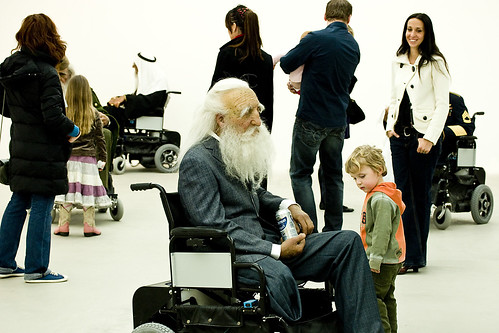
Most Americans would rather not take medical treatments that would allow them to live to 120, according to poll data that Pew Research just released. Specifically, 56% said that they would not take such treatments, while only 38% said they would.
Meanwhile, the majority of Americans think that they’re in the minority, because while they said that they personally wouldn’t want such life extending treatments, 68% thought that “most people” would take them and only 27% would not. In other words, most Americans thought that most people would not behave like they do.
Nearly 7 in 10 Americans would like to live between 79 and 100 years old. Their median ideal life span is 90 years, which is about 11 years longer than today’s average U.S. life expectancy (78.7 years).
Some may this finding counter-intuitive: nearly twice as many people would rather die before 79 years old than live to be over 100 (14% vs. 8%, respectively).
Although only of a quarter of Americans think that by 2050 the average person will live to 120 years old, they are optimistic about future medical advances. For example, 7 out of 10 believe that we’ll cure most forms of cancer by 2050 and that artificial legs and arms will perform better than natural ones. Twice as many Americans think “medical advances” are “generally good” rather than “interfere with the natural cycle of life” (63% vs. 32%, respectively).
Still, let’s suppose that three-quarters of Americans are wrong and that people really will be able to live to 120 years old with a bit of medical help. Now let’s analyze the findings.

Francis Tapon is half Chilean and half French and he was born and raised in San Francisco, California. He’s been to over 80 countries, but he keeps coming back to this magical city because he loves earthquakes.
He spoke Spanish at home, French at school, and English everywhere else. He can get by in Portuguese and Italian, barely survive in Russian and Slovenian, and speak a few other languages.
Francis has an MBA from Harvard Business School and co-founded a successful Silicon Valley company that did robotic vision. He left his technology life to walk across America four times. He has thru-hiked the Appalachian Trail and the Pacific Crest Trail, and in 2007, became the first to do a round-trip on the Continental Divide Trail. In 2009, he was one of the finalists for the California Outdoors Hall of Fame, which “features nominees who are world-renowned for their skills and who have helped inspire thousands of others to take part in the great outdoors.”
Francis has written a couple of travel books including The Hidden Europe: What Eastern Europeans Can Teach Us and Hike Your Own Hike: 7 Life Lessons from Backpacking Across America. He also produced a 77-minute video about his CDT Yo-Yo.








